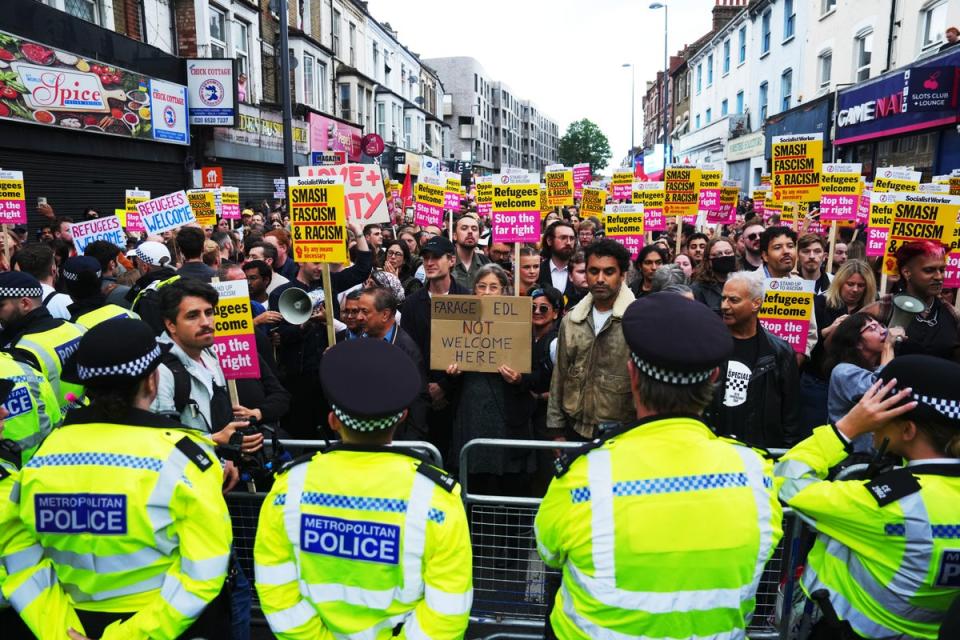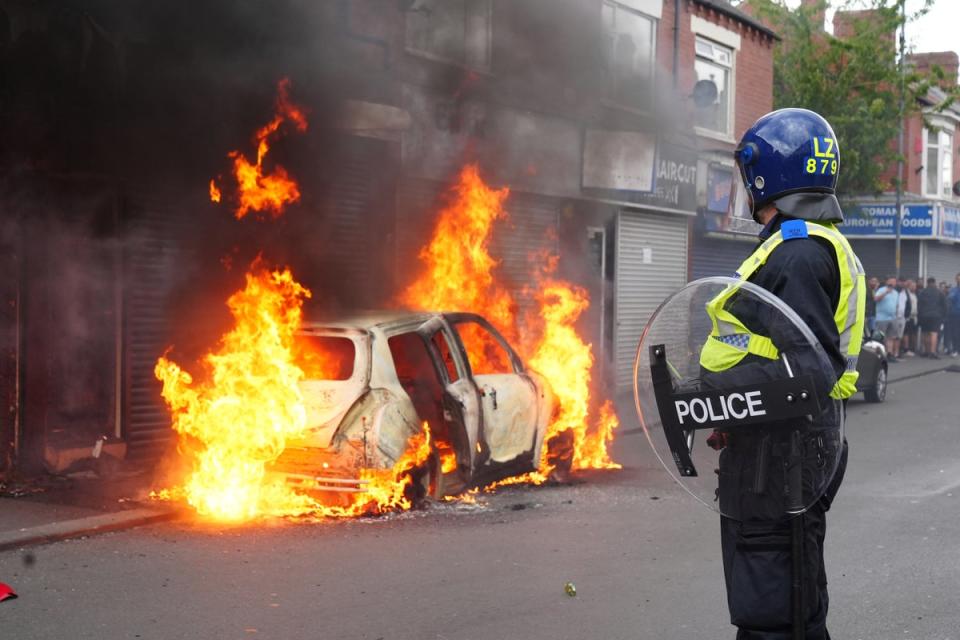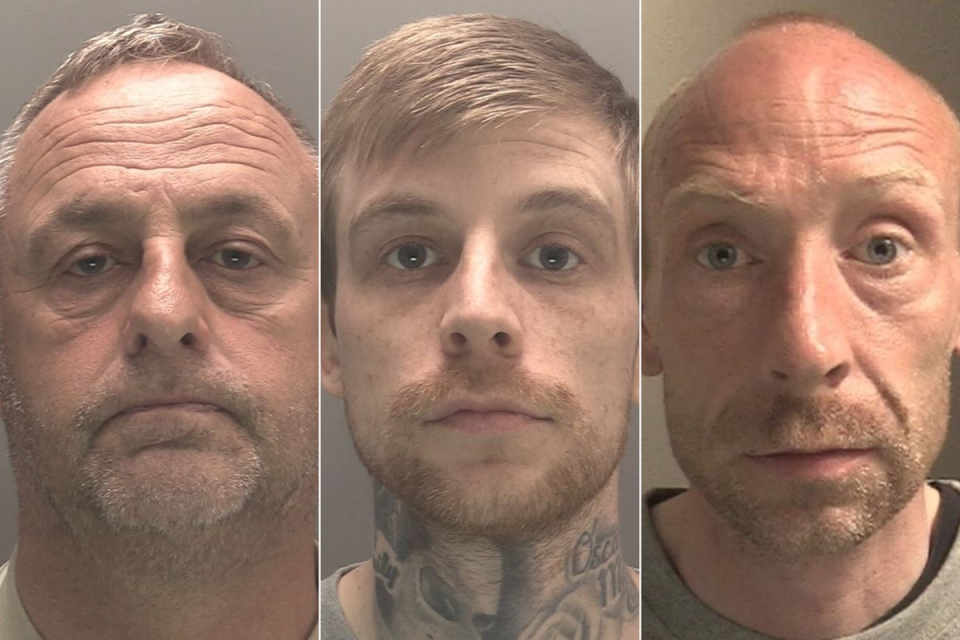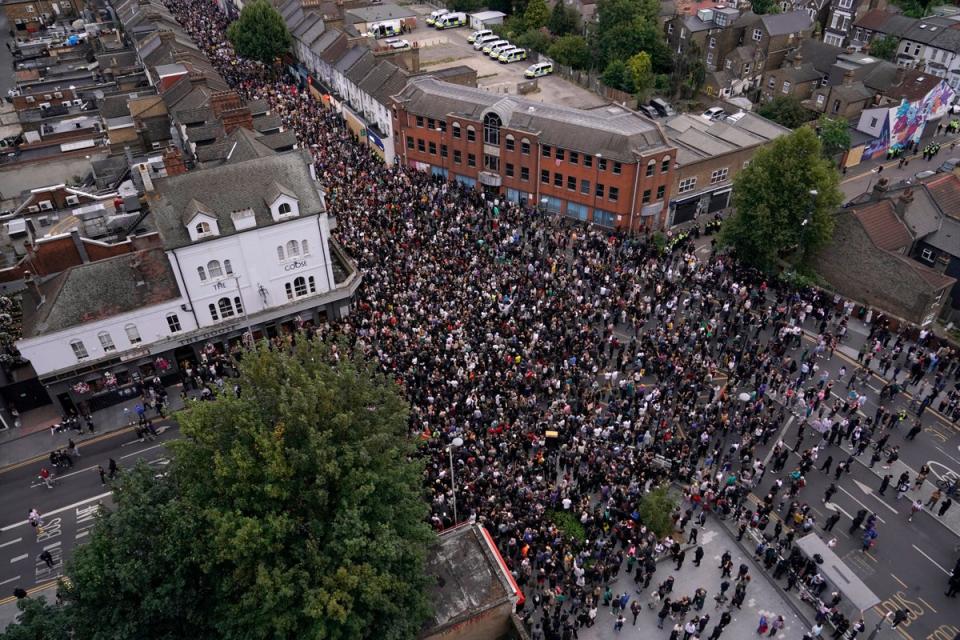Wednesday afternoon saw police and communities preparing for another wave of far-right riots following the disorder seen in UK cities last week.
Shops and homes were boarded up, migrant centers barricaded and 6,000 police officers were deployed across the country.
But when night came, far-right protesters – most of them – did not show up. This is despite widely publicized plans for groups to deploy around 100 targets across the country, including around 40 migrant centers.
Instead, many target locations saw counter-protesters show up by the thousands. On the streets of Walthamstow, east London, around 5,000 anti-racist protesters could be seen holding signs reading “No room for racism” and “Refugees welcome”.

Similar scenes unfolded in places like Brighton, Bristol, Newcastle and Liverpool. These were very different images to those the country saw in Southport last week or in England and Northern Ireland at the weekend.
Hundreds of people were arrested and dozens of police officers were injured following disorder last week. Police said intelligence suggests more unrest can be expected, but many interpret Wednesday’s events as a sign that the worst may be over.
So why didn’t far-right protesters mobilize on Wednesday like they did last week? Here’s everything you need to know:
Number of arrests
More than 400 people were arrested following last week’s disorder, many during the events and some in the following days. Police raided homes, taking them into custody after identifying them as suspects through investigation.
Met Police Commissioner Mark Rowley said: “We were doing some dawn raids this morning, the people who were most violent in the Whitehall protests and violence last week… about 70 per cent of them have criminal records.”
“We have criminal damage, violence, gun crime, football banning orders. These are criminal thugs. Any suggestion that they are patriots or that they have a cause they are protesting for is nonsense and, frankly, most of them will be charged with violent disorder and most of them will go to prison for a few years. .”


Also working alongside authorities are images and footage on social media. Features that have been developed in recent years, such as live streaming and location tagging, will be useful for police to collect information. A police source told The Guardian: “All forces will have analysts monitoring social media, [such as] TikTok, for evidence collection purposes.”
Images of arrests and house raids are likely to have a strong deterrent effect on those who are thinking about rioting and who do not want to end up in the same position.
Strict sentence
Following the disorder in Southport and elsewhere, the Crown Prosecution Service (CPS) worked to quickly convict those involved in the riots. Several have already been convicted and their cases have moved to the top of the queue, despite the delay, sometimes for years, of court proceedings in the UK.
Three men were the first to be arrested on Wednesday in connection with the Southport riots. The longest sentence went to Derek Drummond, 58, from Southport, who has been jailed for three years after pleading guilty to violent disorder and assaulting an emergency worker.


Director of Public Prosecutions, Stephen Parkinson, said: “There are sentencing guidelines which indicate that many people who have been caught by this disease will face immediate imprisonment. There should be no doubt about that. They go to prison.
“We are willing to analyze terrorism crimes. I am aware of at least one case where this is happening.”
It is likely that Mr Parkinson’s strong language, which was echoed by Prime Minister Keir Starmer and Home Secretary Yvette Cooper, put off many would-be protesters. And now that we’re seeing the kind of sentences people can expect to receive for joining the violence, the deterrence has become even stronger.
Counter-protesters
Unlike last week’s far-right riots, plans planned for Wednesday were widely shared on social media. It’s possible that organizers felt emboldened to share details more openly after the relatively high turnout in the weekend’s riots.
Targeted shops, homes and migrant centers prepared for violence by boarding up their windows and even blocking doors. Police forces responded by deploying more than 6,000 officers to deal with more potential unrest.


But perhaps most crucial of all was the massive presence of anti-racist counter-protesters in venues across the UK. These gigantic crowds diminished the presence of the far right in most places, already decreasing compared to recent days.
The movements were organized with the help of the campaign group Stand Up to Racism. The anti-racist organization organized dozens of new protests for a ‘National Day of Protest’ on Saturday, with the aim of “stopping the far right”. In London, crowds will gather outside Reform UK headquarters.
Commenting on the scenes in London, Rowley said: “It was a massive police operation. I’m really pleased with how it went.”
“We put thousands of police officers on the streets and I think the show of force by the police and, frankly, the show of unity by the communities, defeated the challenges that we saw and occurred very peacefully last night. ”

































